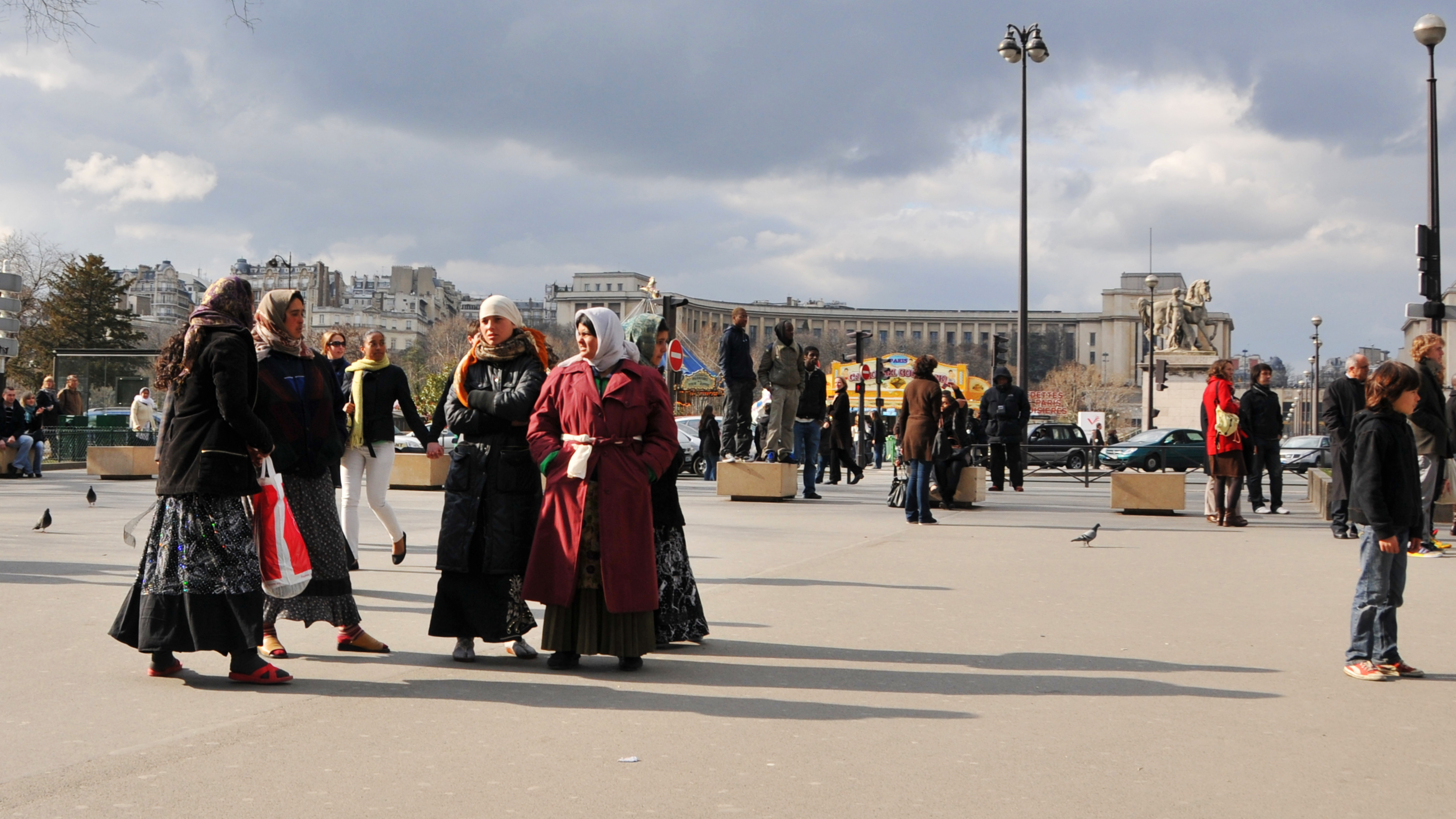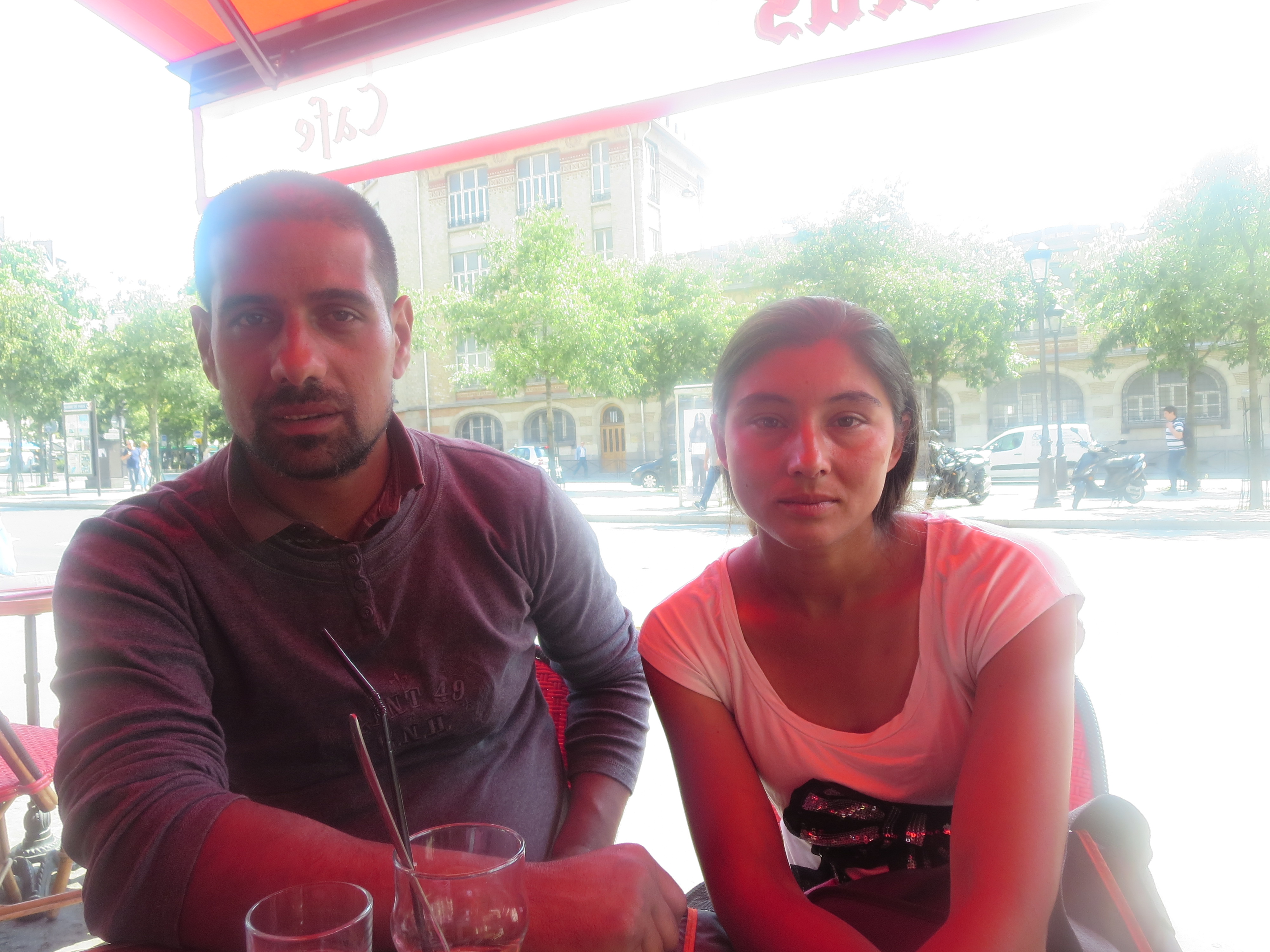
In France, people think of the Roma as roaming "tziganes" or gypsies who make their living as beggars on the streets, engage in petty crimes and prostitution, and intimidate civilians and tourists alike. The French readily exchange gossip about Roma gangs who rob at night. Some even speculate that the Roma mutilate their children to appeal for sympathy when they ask for money.
It's clear that many Parisians regard Roma as unwanted guests, a menace to their otherwise tranquil city. In September 2013, former interior minister Manuel Valls made his views clear: "The Roma should go back to Romania or Bulgaria and stay there." An Amnesty report released the following April warns that the "climate of hostility" indicates that the Roma community "are at serious risk of being targeted, in whole or in part, because of their nationality, migrant status, socio-economic status or ethnicity."
And in June 2014, the brutal attack of a Roma teen from a squalid settlement in Pierrefitte-sur-Seine made national headlines. The teen was abducted from his camp by an angry mob after he was accused of stealing. Despite the public outcry condemning the attack, violence against Roma continues to increase.
The Roma remain a decidedly private community, possibly resulting from years of persecution or a deep-rooted desire to protect their traditions and customs from the scrutiny of others. But, as one looks more closely, one finds a vibrant and misunderstood people, faced with modern problems.
The Roma make up the largest ethnic minority in Europe today. Of an estimated 10-12 million Roma living in Europe, there are a probable 20,000 residing in France. Most Roma come to France from Romania in search of better economic opportunities. "We come here to find a job because in our country it's very difficult," said Mirela Gheorghe, a Roma migrant from Romania now living in Paris.
According to a study by the European Roma Rights Centre (ERRC) from July 2014, many Roma migrants reported having a household income of less than 500 euros or $662 a month, making it difficult to afford basic needs like food and housing and restricting their capability to adequately plan for the future.
Many Roma families live in crowded camps on the fringes of Paris. Most informal settlements do not meet international standards of appropriate housing. Settlements tend to be unclean and some Roma suffer from diarrhea as a result of limited access to clean water.
Nearby residents and others have called for the destruction of Roma camps.
"We can understand the concerns of people living near camps, because camps can be unsanitary," said Oliver Bethoux, director of Médecins du Monde, a nonprofit organization that provides emergency medical care to at-risk groups, including 5,000 medical consultations with Roma each year. "This is a huge problem for us. We face a huge number of families living on the streets because their camp was destroyed without the proposal of an alternative [place to stay] and they are suffering."
Along with displacement, Roma experience prejudice and bias. According to the ERRC study from July 2014, half of all Roma migrants report having experienced discrimination in France. "I've been following the Roma for seven years and have observed in the last two or three years an increase in violence against them," said Bethoux. "Some people have said, 'Why do you care about Roma? They are like animals. They are not really human.'"
In this study, the Roma responded that they commonly faced hate speech and verbal attack. They were made to feel ashamed. Roma women experienced more discrimination than men while shopping, on the street or using public transportation. "When we go some places, people think Roma are not good," said Gheorghe. "With the political speeches [against Roma], people feel more free to display racist behavior," added Bethoux.
"It is difficult to have a debate about the Roma question because there are a lot of stereotypes," said Bethoux. "People think they don't want to work, and that they like living in settlements. We have to fight stereotypes. It will take time."
Despite dealing with poverty, discrimination and violence, most Roma migrants report an improvement in overall quality of life compared to what they left behind in Romania. Contrary to popular belief, they strive to establish a future in France. Gheorghe speaks to the importance of being seen as individuals. "There are bad people and good," she said. "But the thing is to make the difference between bad people and good and not to put people in the same place."



